Search
Search Results
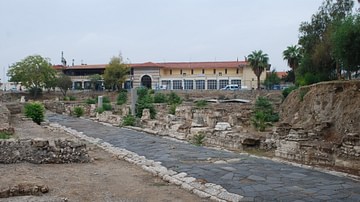
Definition
Tarsus
Tarsus was a city in ancient Cilicia located in the modern-day province of Mersin, Turkey. It is one of the oldest continually inhabited urban centers in the world, dating back to the Neolithic Period. It was built close by the Cydnus River...
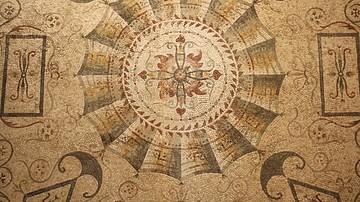
Definition
Mosaic
Mosaics are designs and images created using small pieces (tesserae) of stone or other materials which have been used to decorate floors, walls, ceilings, and precious objects since before written records began. Like pottery, mosaics have...

Definition
Wars of the Diadochi
On June 10, 323 BCE Alexander the Great died in Babylon. Although historians have debated the exact cause most agree that the empire he built was left without adequate leadership for there was no clear successor or heir. The military commanders...
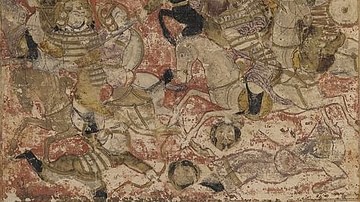
Definition
First Fitna
The First Fitna (656-661 CE) was the first civil war of the Islamic Empire fought between the fourth Rashidun Caliph, Ali ibn Abi Talib (656-661 CE), and the governor of Syria, Muawiya (later Muawiya I; r. 661-680 CE). Deep fissures divided...
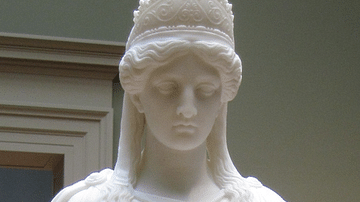
Definition
Zenobia
Zenobia (b. c. 240 CE, death date unknown) was the queen of the Palmyrene Empire who challenged the authority of Rome during the latter part of the period of Roman history known as The Crisis of the Third Century (235-284 CE also known as...
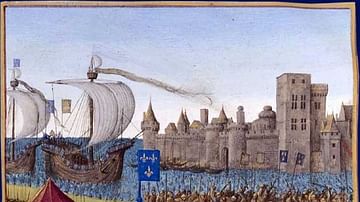
Definition
Eighth Crusade
The Eighth Crusade of 1270 CE was, like the Seventh Crusade (1248-1254 CE), led by the French king Louis IX (r. 1226-1270 CE). As previously, the idea was to attack and defeat the Muslims first in Egypt and then either reconquer or negotiate...

Definition
Illuminated Manuscripts
Illuminated manuscripts were hand-made books, usually on Christian scripture or practice, produced in Western Europe between c. 500-c. 1600. They are so called because of the use of gold and silver which illuminates the text and accompanying...
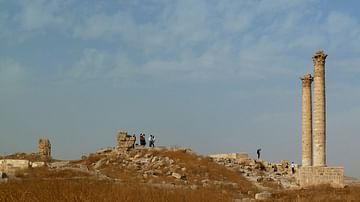
Definition
Edessa
Edessa (modern Urfa), located today in south-east Turkey but once part of upper Mesopotamia on the frontier of the Syrian desert, was an important city throughout antiquity and the Middle Ages. A city within the Seleucid Empire, then capital...
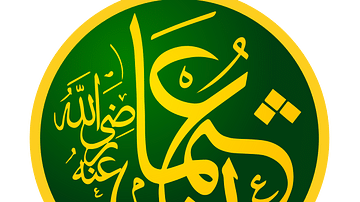
Definition
Uthman
Uthman ibn Affan (l. 576/583-656 CE) was an early convert to Islam, a close friend and son-in-law of Prophet Muhammad (l. 570-632 CE), and the third caliph (r. 644-656 CE) of the Rashidun Caliphate (632-661 CE). His charitable acts and modesty...
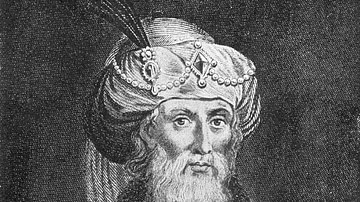
Definition
Flavius Josephus
Titus Flavius Josephus (36-100 CE), was born Yosef ben Matityahu and became a 1st-century CE Jewish historian. He was a member of a priestly household in Jerusalem through his father’s side (the house and order of Jehoiarib), and his mother...